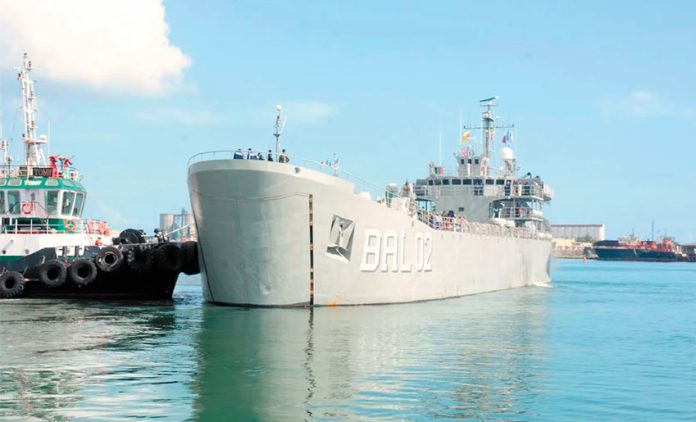Three Mexican ships carrying diesel, medical supplies and food set sail for Cuba this week in what experts described as Mexico’s biggest aid run to the island nation in three decades.
The José María Morelos II, a Pemex tanker, left Coatzacoalcos, Veracruz, on Monday night carrying 100,000 barrels of diesel.
The fuel will be used to generate power for hospitals in Cuba, the Foreign Affairs Ministry (SRE) said.
A second ship, El Libertador, left the port of Veracruz on Tuesday, and a third, El Papaloapan, departed the same port on Wednesday.
Those two ships are transporting medical supplies such as syringes, oxygen tanks and face masks as well as foodstuffs including beans, flour, canned tuna, powdered milk and cooking oil, the SRE said.
A Mexican Air Force plane transported 800,000 syringes to Cuba earlier this month.
El Libertador is carrying 612.5 tonnes of beans, the newspaper El Universal reported. That ship and El Papaloapan are expected to arrive in Cuba during the next two days. Some media outlets reported that the José María Morelos II arrived in Havana on Monday night after leaving Mexico last week. But the federal government said it departed Monday night and has not announced its arrival in Cuba.
The SRE said Mexico was sending aid to help mitigate the impact of the coronavirus pandemic on the island nation, where large protests against the government have occurred in recent weeks.
Rafael Elias Rojas, a Cuban historian and professor at the College of Mexico, told the Associated Press that the aid dispatched in recent days is Mexico’s largest material support of Cuba since the administration of former president Carlos Salinas de Gortari, who was in office from 1988 to 1994.
“This is a new phenomenon” only comparable to aid received during Cuba’s “special period” – 1991 to 2000 – after the collapse of the Soviet Union crippled the island, he said.
“There have been minor instances of aid during hurricane seasons, but the last big aid efforts of this scale or larger, were during the administration of Carlos Salinas de Gortari, when exchanges with Cuba increased significantly and when, as now, there was a deep economic crisis on the island,” Rojas said.
Jorge Guajardo, a former Mexican ambassador to China and consul general in Austin, Texas, called Mexico’s current support for Cuba unprecedented but also said that it harked back to Institutional Revolutionary Party governments’ attitude toward the island nation in the 20th century.
Cuban President Miguel Canel-Díaz thanked Mexico on Monday for its support but didn’t refer specifically to the humanitarian aid.
“President López Obrador has once again dedicated words of solidarity to us in his morning press conference. … Thank you Mexico,” he wrote on Twitter above a video of AMLO railing against the United States embargo of Cuba, which he has called “inhumane.”
López Obrador said last week that Cuba should be declared a World Heritage site because it as an “example of resistance.”
He has urged other countries to send humanitarian aid to Cuba as well. “It’s not enough to vote against the blockade at the United Nations every year,” the president said.
He rejected any suggestion that Mexico’s relationship with the United States would suffer as a result of sending aid to Cuba because “we’re an independent, free and sovereign country and we’re acting in that way.”
The government has, however, faced criticism for its support as Cuban authorities carry out a crackdown on dissent.
“While the Cuban regime brutally suppresses protesters, the foreign minister of Mexico, Marcelo Ebrard, meets with his counterpart Bruno Rodríguez to express his ‘solidarity.’ Shameful,” Human Rights Watch Americas director José Miguel Vivanco wrote on Twitter July 24.
With reports from ADN 40, El Universal, BBC and AP
